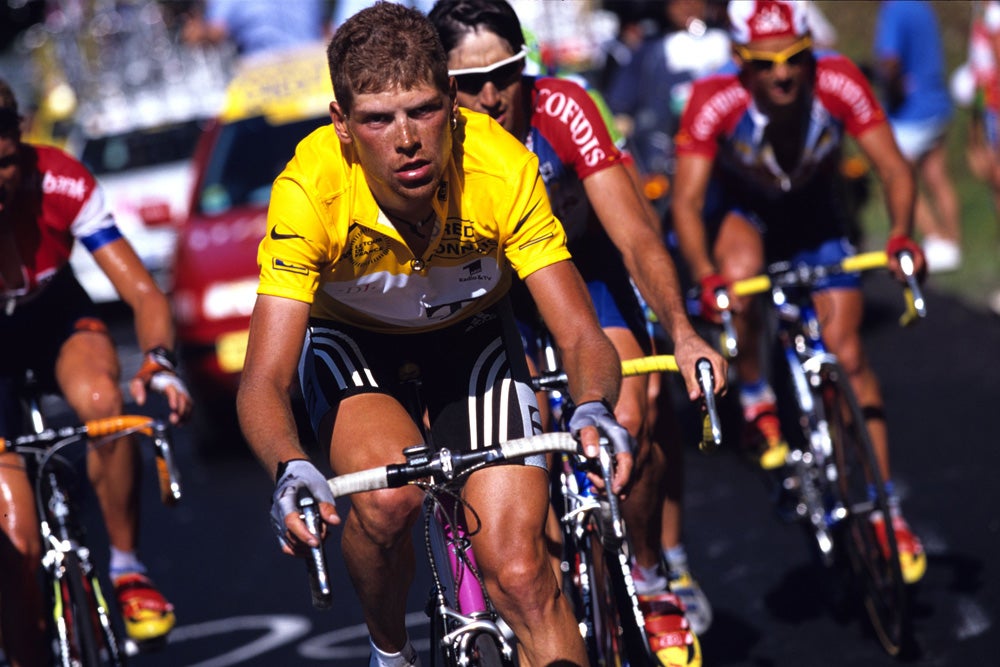Report: Pantani, Ullrich, among 1998 Tour positives

Jan Ullrich, shown here in the 1998 Tour, is auctioning one of his bikes from that year's race. (Photo: Photo: Graham Watson | <a id="www.grahamwatson.com" href="http://grahamwatson.com">www.grahamwatson.com</a>)
PARIS (AFP) — Italian Marco Pantani, Germany’s Jan Ullrich, and American Bobby Julich — the top three during the 1998 Tour de France — were all taking the banned blood booster EPO, according to reports published by French daily Le Monde on Tuesday.
The revelations come just ahead of a French parliamentary commission’s scheduled release on Wednesday of a report believed to contain the names of riders testing positive for EPO in reotractive tests from the 1998 Tour.
Last month, Frenchman Laurent Jalabert was alleged to have been one of those implicated through comparison of retractive testing results from 2004 and a list of anonymous samples from 1998. Jalabert immediately stepped down as a television and radio pundit for this year’s Tour, replaced by Richard Virenque — one of the central riders involved in the 1998 Festina affaire.
Since May, there has been debate in France about the utility of naming names, with the family of Pantani, who died in 2004, saying it was against identifying riders.
German sprinter Erik Zabel, who won the green jersey in 1998, is also cited by Le Monde as taking EPO on the way to victory. Along with Ullrich and Julich, Zabel has previously admitted his EPO use.
The professional cyclists’ association, the CPA, last Friday said that it, too, was opposed to publication.
“Publication of a list amounts … to an accusation of doping without any means of defense,” the CPS said, arguing that no counter-analysis was possible as the original samples no longer existed.
Nevertheless, the senators are believed to be likely to publish the riders’ identities and could equally include lists of samples taken in the 1999 Tour, which was won by U.S. rider Lance Armstrong. Armstrong was stripped of his seven Tour wins and banned from cycling for life last year for doping in a scandal that plunged cycling into crisis over the extent of substance abuse among the peloton.
The commission questioned 84 witnesses under oath, from sportsmen and women to organizers and anti-doping experts, to “lift the lid” on and “break the code of silence” over the subject. Cycling, with its doping-scarred past, has not been the only focus, however, with attention also paid in particular to rugby.
The French anti-doping agency assessed that the sport was the most affected by doping in relation to its testing, while football and tennis were also examined. France football coach Didier Deschamps was questioned behind closed doors while tennis came under the scrutiny for its relative lack of testing at an international level.
The senators are aiming to frame legislation on sport and put it before parliament for debate next year.